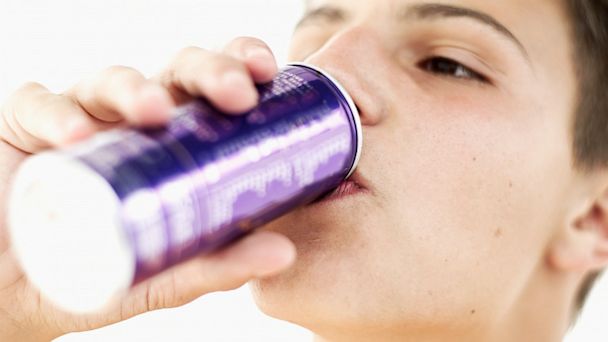Childhood Obesity Prevention Initiatives, Big and Small

(Image Credit: Getty Images)
"How many sodas and sports drinks does he drink a day?"
We know that soda, sports drinks and juice intake is a risk factor for being overweight or obese, so that's one of the questions I always ask my young patients and their parents.
Childhood Obesity Prevention Tweet Chat Today at 1 PM ET
In this particular instance, the mom I was talking to was heavyset. She gave me a sheepish look as she answered.
"Two or three," she said. "I just can't say no. I like to drink them, too."
And therein lies the dilemma for a lot of parents. We want our kids to eat a healthy diet, get a good night's sleep and exercise on a regular basis, but we aren't always a model for such behaviors ourselves.
There's certainly no denying that childhood obesity is a nationwide problem. One-third of all kids are overweight or obese according to the latest statistics from the Centers for Disease Control and Prevention. And while the numbers have held steady since 2000, they haven't decreased, except in a few select populations.
Childhood obesity leads to all sorts of other health conditions like Type 2 diabetes, heart disease, asthma and cancer. As a pediatrician, I see this scenario play out in my office every day.
Why Childhood Obesity Is Down Among Poor Kids
I tell my patient's parents that the key to getting a child's weight under control is not letting it get out of control in the first place. It's so much easier to prevent problems than it is to treat them.
If we want to see a decline in childhood obesity rates, we can't keep doing things the same way. But change isn't necessarily easy and isn't always well-received.
Across the country, new approaches are being tried. In January of 2012, the Department of Agriculture raised the standards on school lunches: Each child receives a piece of fruit and a fresh vegetable every day. There are more whole grains and less fat, sugar and salt.
How have some parents responded? "Outrageous!" they cry. "My child will never eat that."
As a result, some schools have seen their lunch sales decline and have opted out of healthy school lunch program.
Schools in 19 states have taken another approach. They're screening children for excess weight by measuring body mass index, and sending that information to parents in a letter talking about obesity and the steps it takes to prevent it. Because it's often referred to as a "Fat Letter," many parents are up in arms; how dare a school police my child's weight and height?
Given that many schools provide vision screening and hearing screening, I'm not sure why weight screening is so controversial. The effect of obesity on health is overwhelming and many children do not regularly see a doctor after they enter school. Sending a letter home provides a good snapshot of a child's health.
It's too soon to tell how effective these large scale initiatives are going to be. But the hope is, over time, they will make a difference.
So back to my patient and his mom: We talked about how in a perfect world, she and her son could wean themselves off the sodas together. I certainly encouraged her to never stop trying.
But we also talked about how sometimes we make rules for our children that we ourselves don't abide by. We might have a glass of wine in the evening and would never let our children do that. We might send them to bed earlier than we go to sleep.
And we might decide that certain programs on television are off limits for them but the adults in the household watch them.
I said she could explain it this way. "Sodas are a once in a while treat. I'll let you have one every now and then but not every day. My job as your parent is to keep you healthy and that's what I am going to do. When you're an adult, hopefully, you will have healthier eating habits than I do."
No negotiation. Just make it a rule.
The mom gave me a big smile and left feeling in control, determined to help her son try to avoid the health problems that she herself faced. It reminded me that as much as those large-scale initiatives are necessary, there's also a need to tackle the problem of childhood obesity one child at a time.
Childhood Obesity Tweet Chat Today at 1 PM ET
Our Tuesday ABC Health tweet chats this month will focus on major childhood health concerns. We're kicking off the series today at 1 p.m. with a chat that focuses on the prevention and treatment of childhood obesity.
Join us to find out what you can do to set up your child for a lifetime of good health.